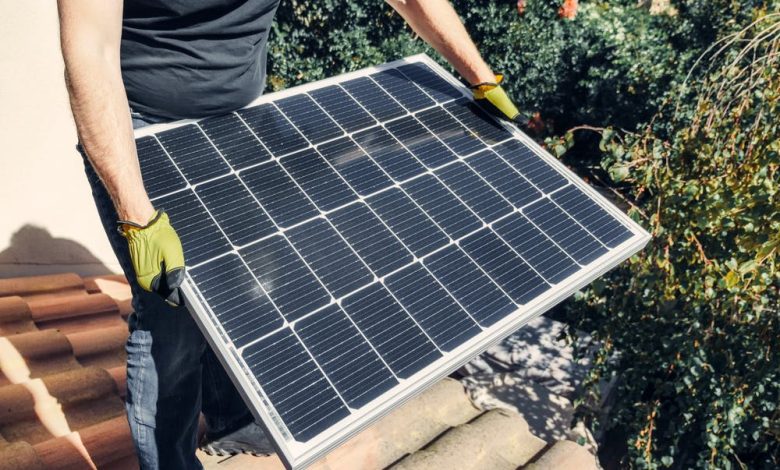
There is a lot of buzz about solar energy to power your home or business. This might be what you need to start saving money and being eco-friendly at the same time. But before you head down to your local hardware store to choose among a variety of solar panel systems, there are some things that you need to know and consider.
Starting off with the first and most important question: Is your home a good candidate for a solar panel system?
It wouldn’t be wise to install a solar panel on your roof even though your home rarely gets any sunlight. Or install it in a tight space where it would not be efficient for the solar device to harvest sunlight. That said, solar panels need some space to be effective. Typically, you need about 200 square feet of roof space clear of obstruction. However, it depends on the size of your home and how much power you’re hoping to conduct.
Speaking of roofs, your roof’s orientation is also an essential factor to consider before buying solar panel systems. It is ideal to have your roof facing south to maximize the amount of sunlight you collect. Additionally, you must consider the amount of shade and if any obstacles may impact the amount of sunlight hitting a panel. Look at the shade’s footprint before any decision regarding the installation of solar panels.
If your home is eligible for solar panel installation, the next step would be to pick the right solar panel for you. Here’s what you should look out for when buying solar panels.
Panel Type
There are three types of solar panels available in the market: monocrystalline, polycrystalline, and thin film. Each panel has its advantages and disadvantages. We’ll leave it in your hands as per the best option because it will ultimately depend on your preferences.
Monocrystalline is the old type available. It can be the most expensive of the three because it is the most developed and proven to be the most efficient in gathering sunlight.
Polycrystalline is cheaper than monocrystalline, and its efficiency is lower than the latter. However, this type is gaining attraction among consumers because of the more affordable price tag.
Thin film is one of the latest developments in solar technology. The power output may not be as high as the first two. Still, its affordable price and lightweight build, and installation flexibility attract more people by the day.
Performance
When you’re shopping for solar panels, it’s essential to know that the power they produce will depend on the level of efficiency. The average solar panel efficiency is around 15%–22% in most cases. It’s important to know your options when it comes time to select a unit because if you have a low-efficiency panel, it might not handle all of your energy needs or produce as much power as you may need to make your appliances function optimally.
Durability
You should consider your environment when making decisions about the solar panel components to buy. Factors like dust and humidity should be considered because prolonged exposure to dust may dull their ability to charge efficiently. Also, electricity isn’t particularly great at traveling through the humid air. So having power-efficient products can help you save money in the long run by keeping your product working even when atmospheric conditions are not optimal.
Weather and Climate
The weather can have a significant impact on your solar energy production. In turn, homeowners in wet or cloudy areas will not see as much solar energy production as those from sunny and dry locations. If your home experiences overcast weather, you should install additional panels to compensate for shade.
Total Cost
Solar panels will almost certainly save you money in the long run. The longer you stick with the renewable energy source, the more you will save as you watch your utility bill shrink. However, certain investments need to take place before installing a solar panel array, and these expenses should not be overlooked.
Expenses include the contractor’s fee for installing the solar panels and modifications needed around your home to accommodate the installation, among other things. Also, you need to apply and pay for a permit from your local government to have permission to use solar energy technology. Lastly, your solar panels need to be looked at after a few years of generating power. Therefore you need to consider the many costs of having a green power energy source.
Key Takeaway
Solar panel systems are strongly believed to be the future of energy production. However, their benefits may not translate to you. Suppose a complete solar power system costs more than its benefit outweighs the cost. In that case, it makes little sense to get even a single panel installed on your property. But if you find yourself in a situation where solar panels could pay for themselves over their lifetime due to your specific utility rate or high electricity consumption, it may be worth installing them at home.





